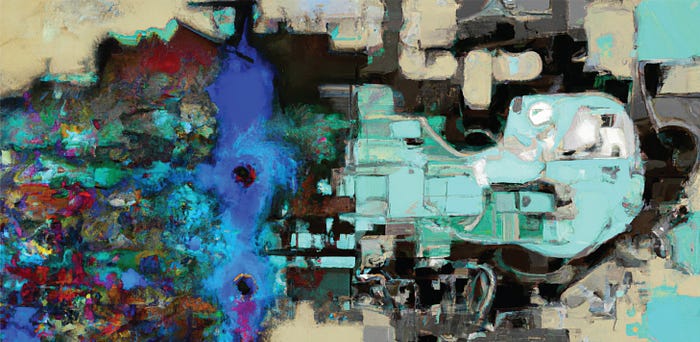Formalizing the role of intermediaries in Digital Creative Industries in Africa

From the 17th to 20th of October 2022 Pollicy together with other partners from across Africa took part in the first ever Pan African Forum for intermediaries in the Digital Creative Industries under the Fak’ugesi Festival at the Tshimologong Precinct under Wits University in Johannesburg.
As part of this forum, top of the agenda was understanding and defining who an intermediary is, what their roles are, and why they are crucial to the success of digital creative industries in Africa. Building from the attendees of the forum who were from Ethiopia, Kenya, South Africa, Uganda, Senegal, Zambia, and Nigeria, this network was homogenized as one of the intermediaries. Roles of these intermediaries include festival organizers, distributors, artist collective leads, researchers, media, telecoms as well as public and other private sector members working within creative industries.
Loosely defined, an intermediary was defined as the persons working in the DCIs as enablers particularly functioning in the realm between the creatives and their audiences across the value chain of the sector. Interim findings by Wits University indicated gaps in the understanding and thereby also support of the roles of intermediaries which has constrained the growth of DCIs across the continent.
From a value chain analysis perspective all the way from research and development to concept development to pre production, production and marketing, and distribution, one realizes that there are a number of key players in the creative sector who aren’t just the creatives themselves. It is these intermediaries in the sector whom this convening hoped to highlight their roles, and challenges and chart standardized ways of operation for them that are favorable to them, creatives, and the creative markets too.
Some key challenges identified in the roles and functioning of intermediaries across the continent included limited customer engagement in the DCIs, piracy, limited skills as well as issues in access to tools and infrastructure.
To try and address these issues, a roadmap was developed that was split into immediate, short, medium, and long term solutions that are intended to be adopted across the continent. Additionally, an intermediaries platform is underway in development to aid in the collaboration of efforts to support intermediaries and DCIs as a whole on the African continent.
Some intriguing solutions that came up during this forum included visa assistance for intermediaries in cross border work, standardized IP laws across the continent building for instance from Kenya’s recently passed piracy law, more deliberate investment in research and development, tapping and investing more in the DCIs that are of utmost financial potential especially games including games for change as well as always having audiences in mind. Another critical takeaway was that DCIs in Africa don’t have the luxury to be fragmented thereby pointing to an urgent need for all stakeholders to band together. Who controls the narrative of sector is also something that came up as a critical area to explore in understanding the patterns of DCIs on the continent.
Conclusively, the main take away from all this is a less considered approach in analysis and understanding of DCIs which is the value chain approach which is being put forward as a more viable alternative to the previous approach which only centered on creatives. With this, it is hoped the DCIs on the continent would be able to realize more singular growth.
